The document has been published before, and was for some years available on the Ministry of Home Affairs website. But the article by Venkatesh Nayak is well researched, and he has managed to achieve what (as far as we know) no other scholar has succeeded in doing - he has consulted the original of the Instrument of Accession in the National Archive of India.
At the same time, the BBC Hindi website has a piece by Andrew Whitehead (who also happens to be the moderator of the KashmirConnected website) on the circumstances in which the accession was signed. He believes that while the document was dated 26 October 1947 it was actually signed the following day.
And in case you are wondering what the document itself looks life, it's posted below:
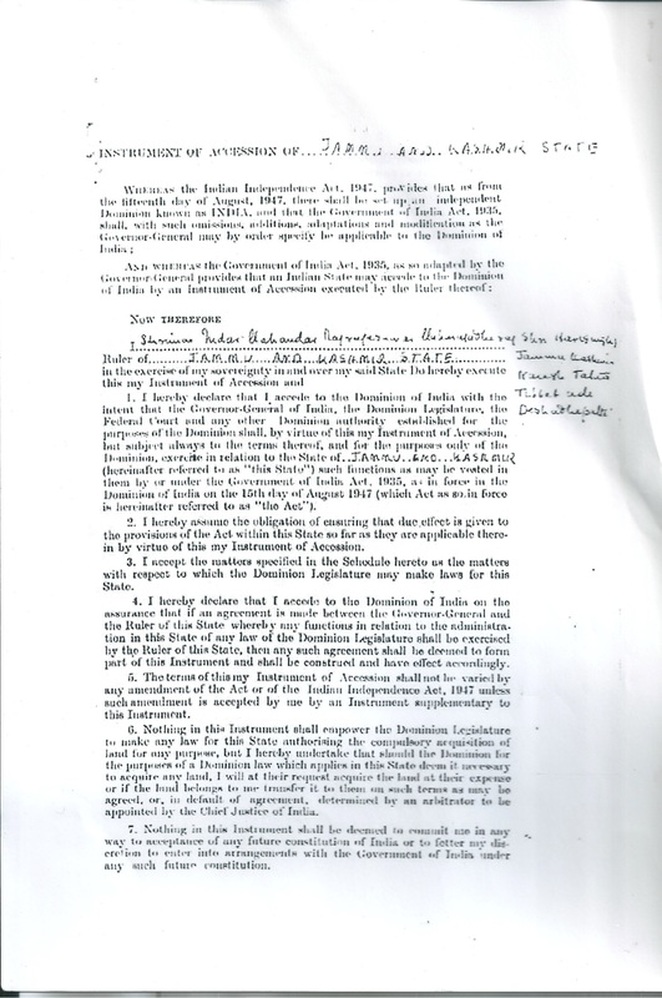
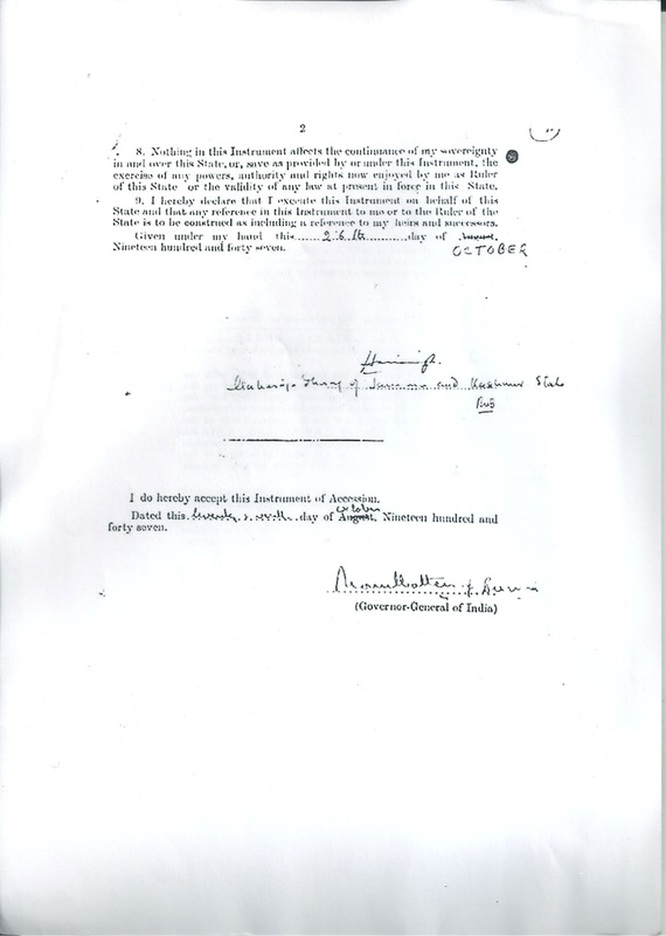
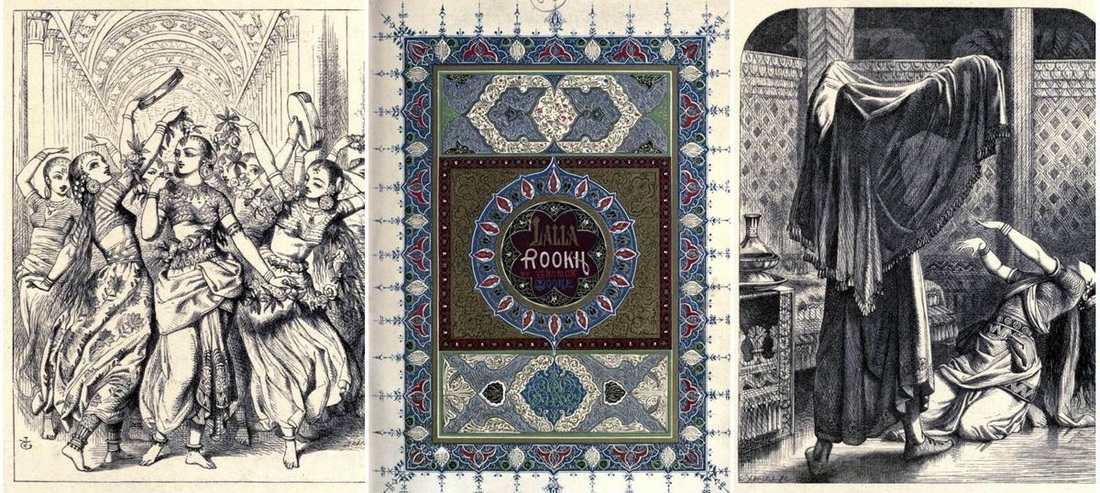
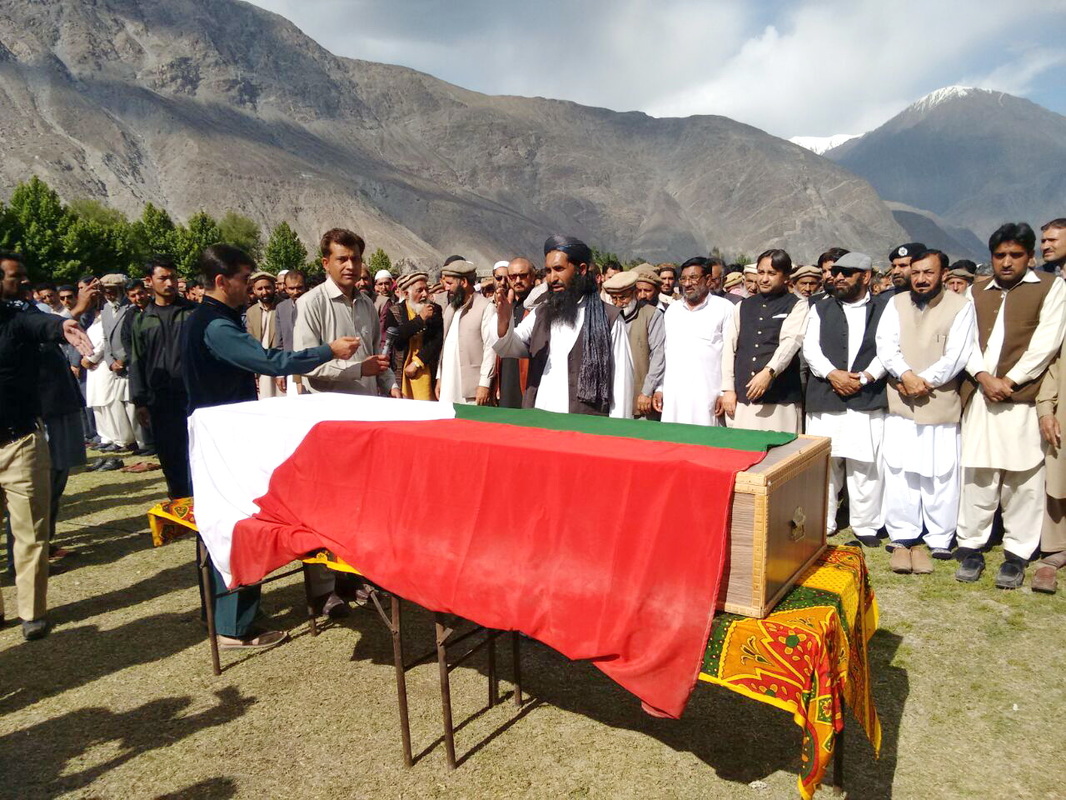
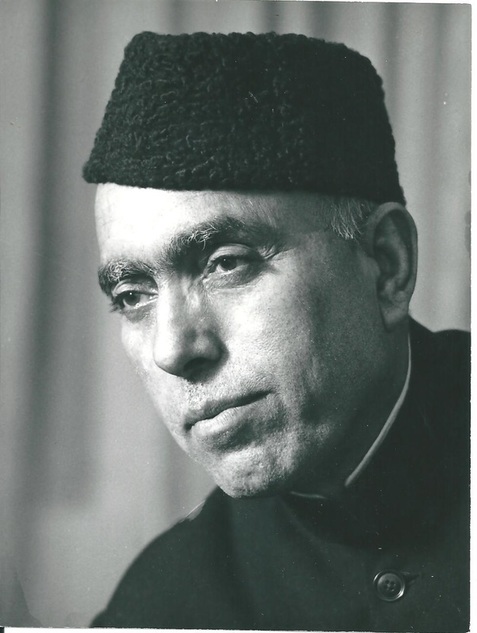

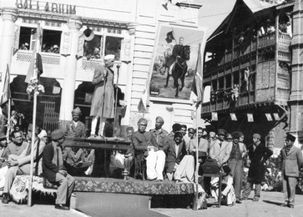
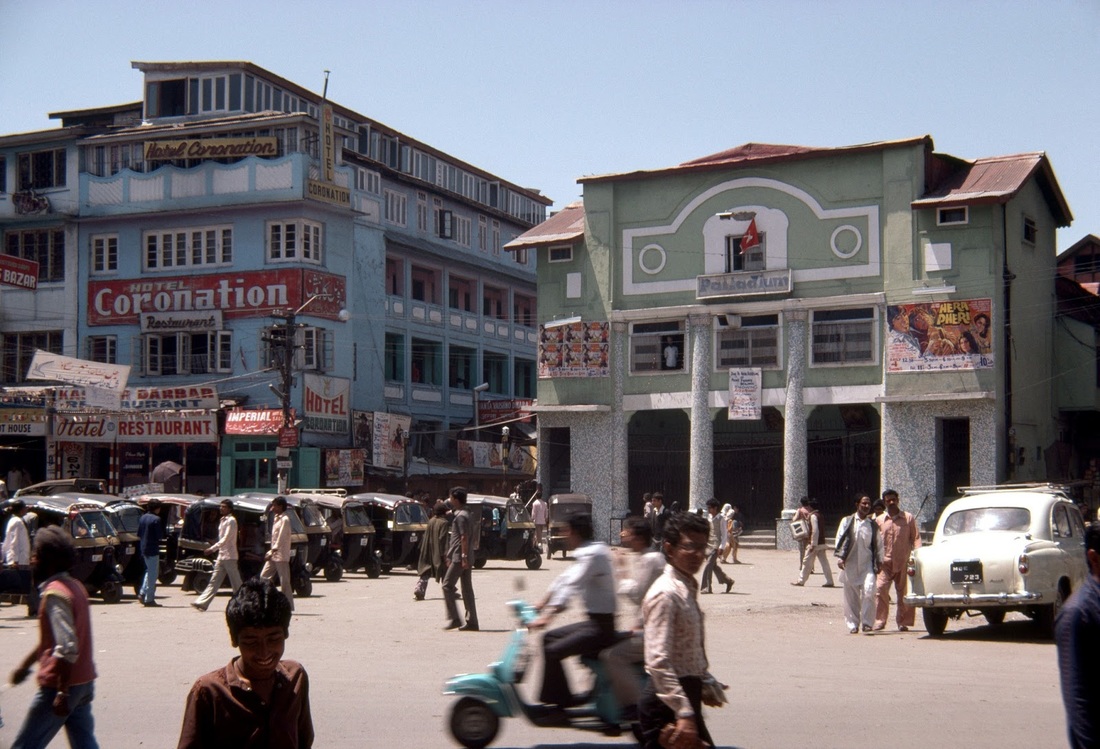
 RSS Feed
RSS Feed